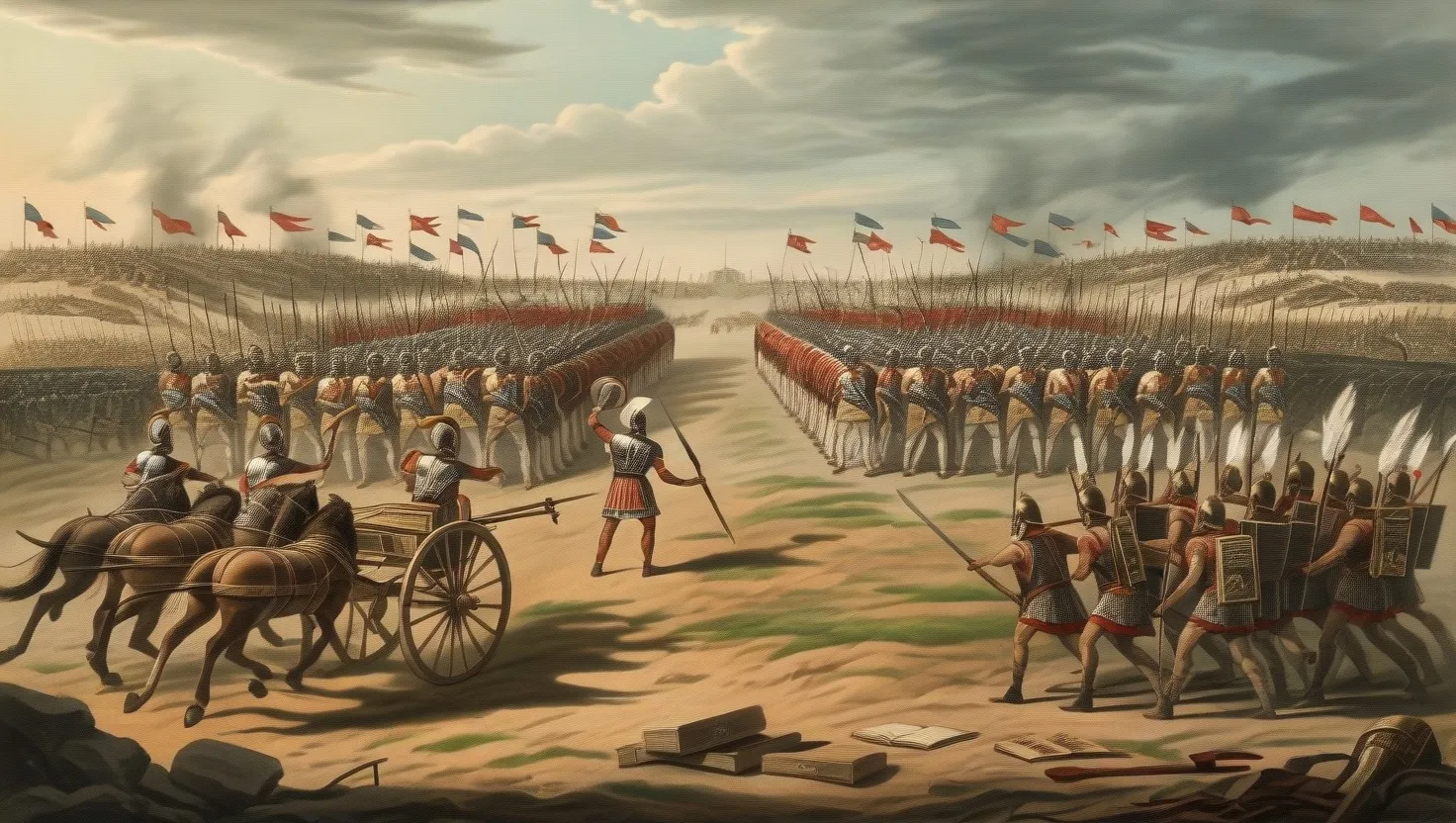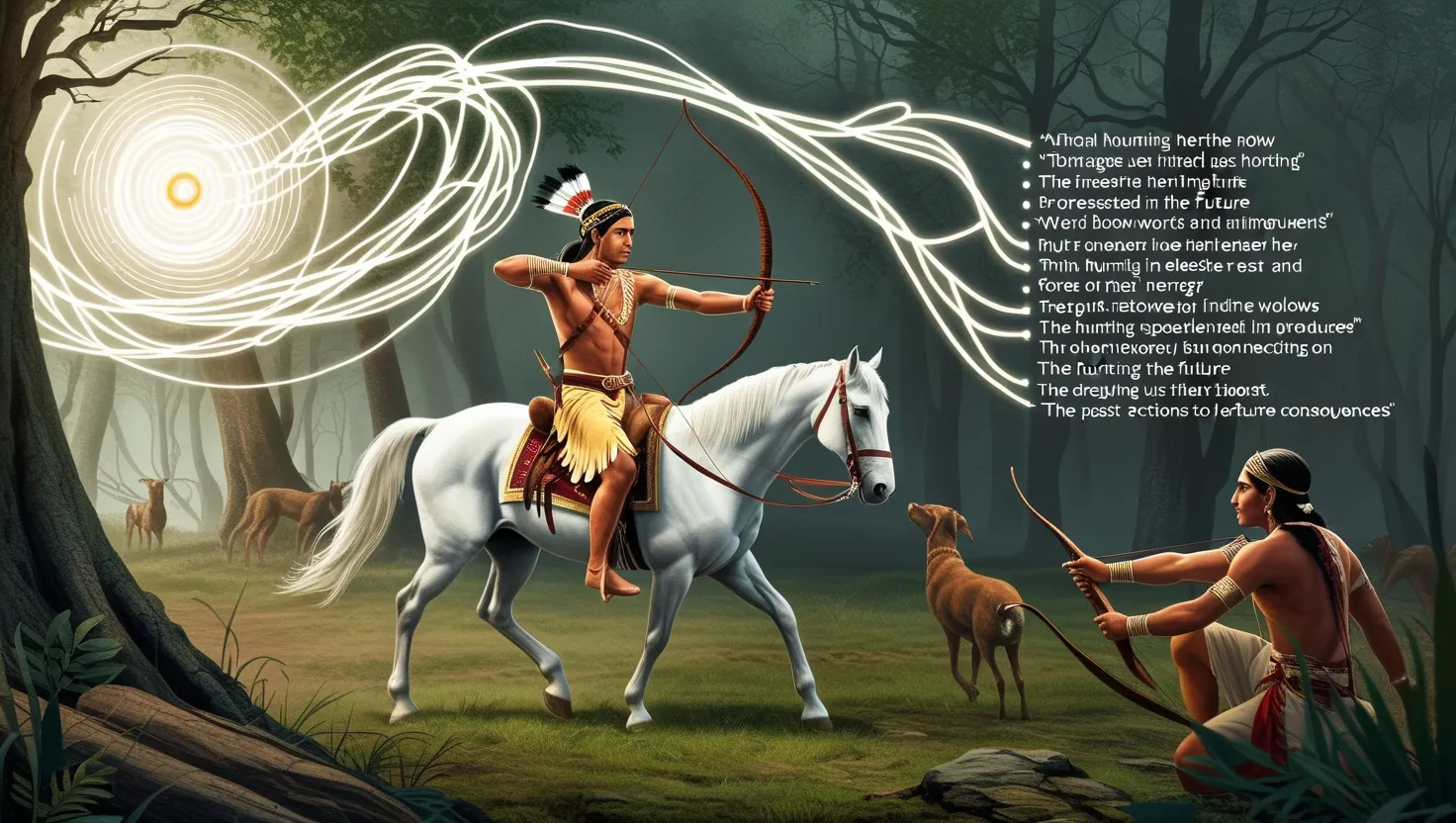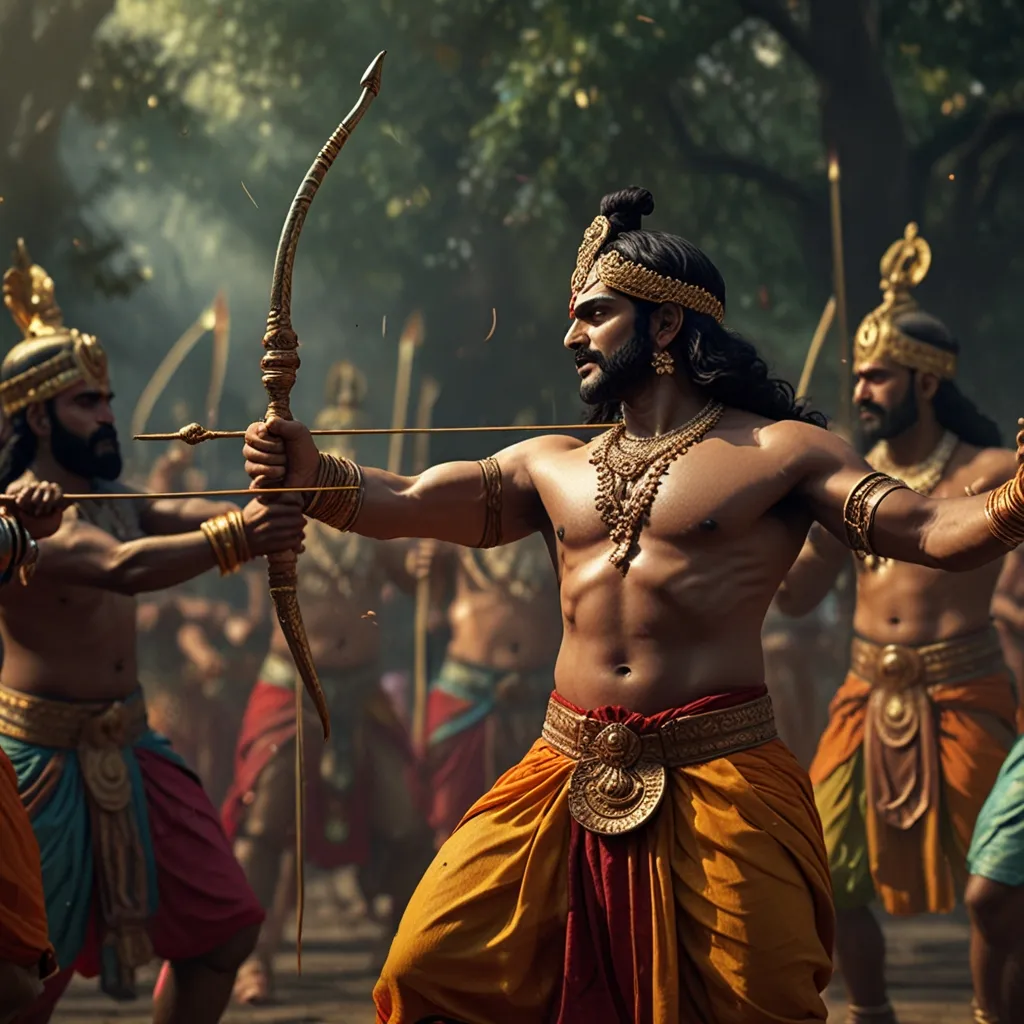The Kurukshetra War, a pivotal event in the ancient Indian epic, the Mahabharata, is more than just a tale of good versus evil; it is a rich tapestry of strategic brilliance, leadership nuances, and ethical dilemmas. As we delve into the intricacies of this 18-day battle, we find ourselves confronted with timeless lessons that resonate deeply in today’s world.
The Stage is Set
Imagine a battlefield where the greatest warriors of the time gather, each with their own unique skills and strengths. The Kauravas, with their formidable army of eleven divisions, seemed invincible, especially with legendary warriors like Bhishma, Dronacharya, and Karna on their side. Yet, the Pandavas, with only seven divisions, managed to emerge victorious. This disparity in numbers highlights one of the most critical leadership lessons from the war: the optimum utilization of limited resources.
Krishna, the master strategist, played a pivotal role in this victory. He demonstrated that effective leadership is not about having the most resources, but about using what you have in the most efficient and innovative way possible. This is a lesson that transcends the battlefield and applies to any organization facing resource constraints.
Adaptability: The Key to Success
One of the most striking aspects of the Kurukshetra War is the adaptability of the Pandavas. When faced with the indomitable Bhishma, Krishna did not rely on conventional tactics. Instead, he used his strategic foresight to guide Arjuna in exploiting Bhishma’s one weakness: his vow not to fight a woman. By placing Shikhandi, a warrior born as a woman, in front of Arjuna, Krishna ensured that Bhishma would not engage in combat, thus neutralizing one of the Kauravas’ strongest assets.
“As a leader, you must be willing to adjust your strategies in response to evolving circumstances,” Krishna’s actions seem to say. This flexibility is crucial in any leadership role, where the ability to adapt can mean the difference between success and failure.
Ethical Dilemmas: The Personal Cost of Duty
The Kurukshetra War is not just a story of battles won and lost; it is also a poignant exploration of the personal costs of duty. Arjuna, faced with the prospect of fighting his own kin, is torn between his duty as a warrior and his love for his family. Krishna’s counsel, as captured in the Bhagavad Gita, is a powerful exploration of this dilemma.
“You have a right to perform your prescribed duty, but never to the fruits of your action. Never consider yourself the cause of the results of your activities, and never be attached to not doing your duty,” Krishna advises Arjuna.
This dialogue raises profound questions about the nature of duty and the ethical considerations that come with it. In modern leadership, this translates to the importance of making tough decisions while remaining true to one’s values and principles.
Unity and Morale: The Pandavas’ Secret Weapon
The Pandavas’ victory was not solely due to Krishna’s strategies or their individual bravery; it was also a result of their unity and high morale. Despite being outnumbered, they remained cohesive and motivated throughout the war. This unity was fostered by Krishna’s leadership, which emphasized the importance of teamwork and collective purpose.
“United we stand, divided we fall,” is a maxim that finds its roots in the Kurukshetra War. Leaders today can learn from this by focusing on building strong, cohesive teams that are driven by a shared vision.
Controversial Tactics: The Limits of Fair Play
The war also raises questions about the limits of fair play in conflict. Bhima’s attack on Duryodhana below the waist, for instance, is a controversial tactic that has been debated for centuries. This incident highlights the gray areas in warfare and the ethical dilemmas that leaders face in high-stakes situations.
“Is it ever right to bend the rules to achieve victory?” This is a question that has no easy answer, but it is one that leaders must grapple with. The Kurukshetra War shows us that even in the heat of battle, ethical considerations must not be forgotten.
The Aftermath: Lessons in the True Nature of Victory
The end of the Kurukshetra War is a sobering reminder of the devastating consequences of conflict. The once-mighty armies are decimated, and the survivors are left to grapple with the aftermath of their actions. This serves as a cautionary tale about the futility of war and the importance of seeking peaceful resolutions.
“War does not determine who is right - only who is left,” as the saying goes. The Kurukshetra War teaches us that true victory is not about winning battles, but about achieving peace and harmony.
Leadership Lessons for the Modern Era
So, what can modern leaders learn from the Kurukshetra War? Here are a few key takeaways:
- Strategic Vision: Krishna’s role in the war highlights the importance of having a clear vision and strategy. Leaders must be able to see beyond the immediate and plan for long-term success.
- Empathy and Understanding: Krishna’s dialogues with Arjuna demonstrate the importance of empathy and understanding in leadership. Leaders must be able to listen to and address the concerns of their team members.
- Adaptability: The war shows us that adaptability is key to success. Leaders must be willing to adjust their strategies as circumstances change.
- Ethical Integrity: The ethical dilemmas faced during the war emphasize the importance of integrity in leadership. Leaders must ensure that their actions are guided by ethical standards and moral values.
- Unity and Morale: The Pandavas’ unity and high morale were crucial to their victory. Leaders today can learn from this by focusing on building strong, cohesive teams.
Reflecting on the Lessons
As we reflect on the strategies, leadership decisions, and ethical challenges of the Kurukshetra War, we are reminded of the timeless wisdom it offers. Here are a few questions to ponder:
- How can you apply the principles of strategic foresight and adaptability in your own leadership role?
- How do you handle ethical dilemmas in high-stakes situations?
- What steps can you take to foster unity and high morale within your team?
The Kurukshetra War is more than just an ancient tale; it is a mirror held up to the complexities of human nature and the challenges of leadership. By studying its strategies and lessons, we can become better leaders, equipped to handle the complexities of our own time.






